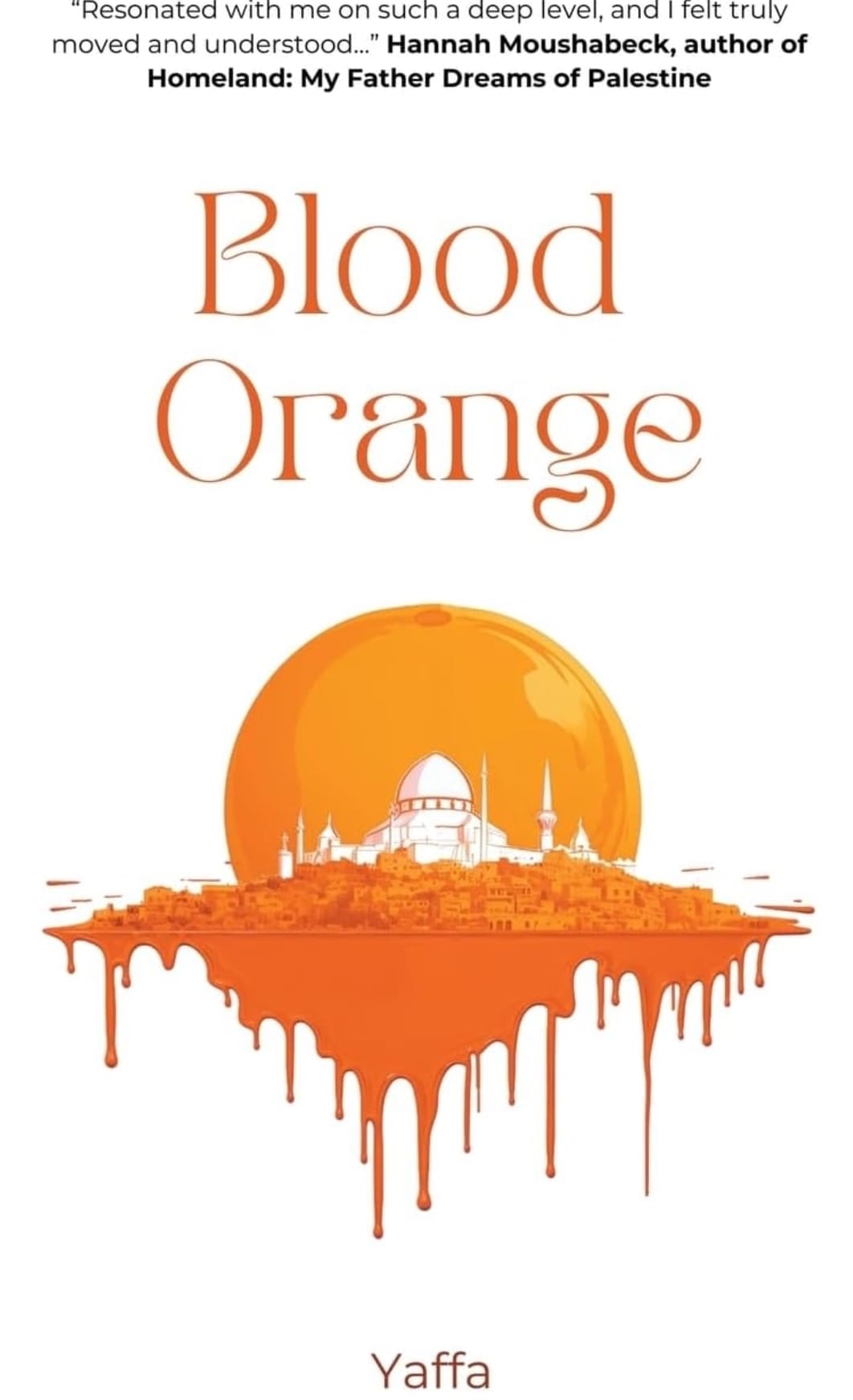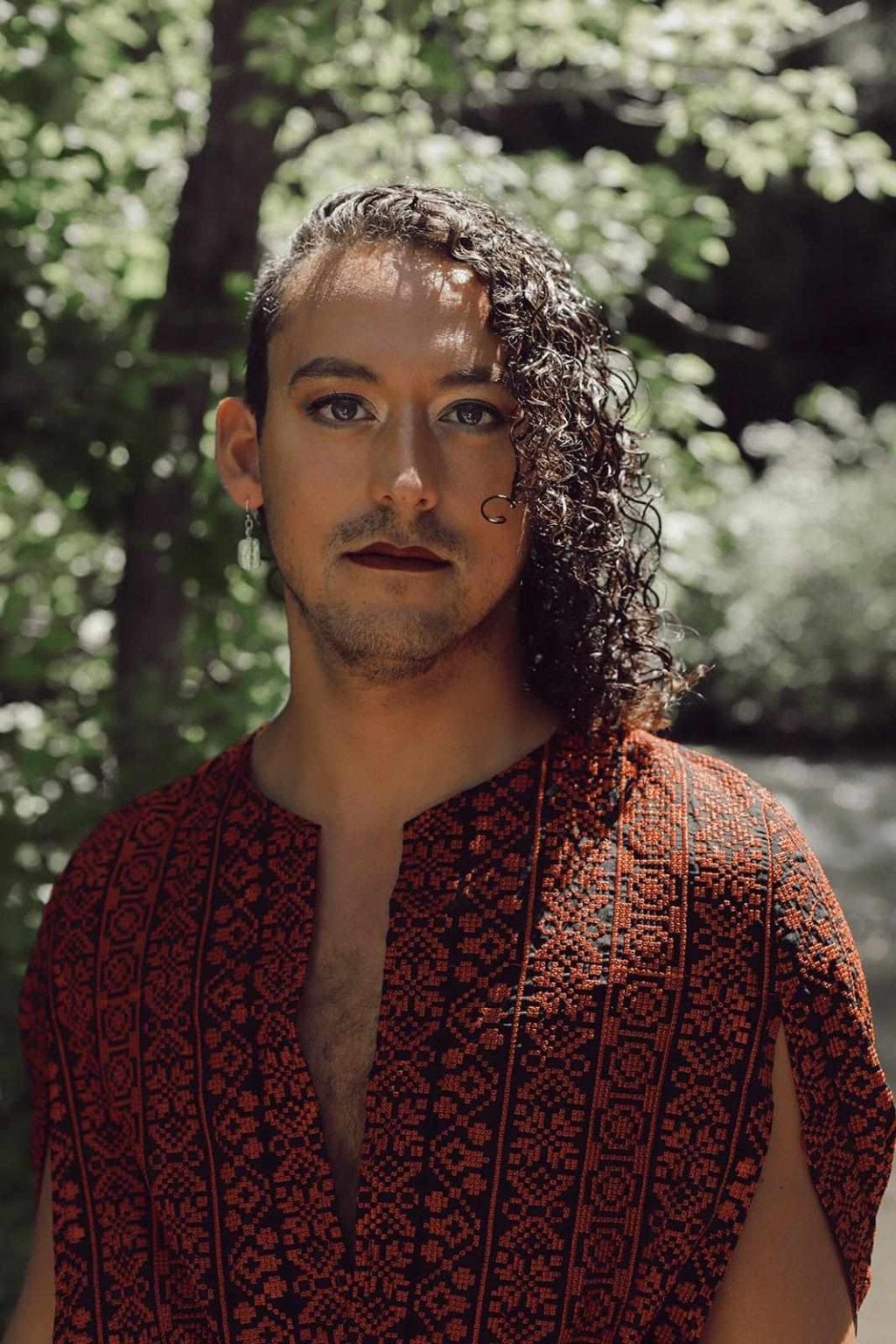Mx. Yaffa carries with them a strong, quiet, statuesque presence as they step to the front of the stage at the San Francisco LGBT Centre at its Transgender Day of Remembrance event. They are wearing a kufiya wrapped around their head, a patterned scarf that holds deep cultural significance to Palestine and Palestinians. It is a symbol of freedom and self-determination. Long watermelon earrings also lay dangling from Yaffa’s ears, which are common symbols for Palestine and the Free Palestine movement. The use of the symbol itself arguably dates back to the 1980s according to renowned Palestinian artist Sliman Mansour. This was the first time I heard the poetry from Blood Orange, which immediately possessed me with the desire to read the full collection.
In transgender Palestinian poet and activist Yaffa As’ Blood Orange, poetry is activist and exploratory work. Yaffa is currently the Executive Director for the Muslim Alliance for Sexual and Gender Diversity, founder of Meraj Publishing — a queer and trans Muslim publishing house — as well as a peer support specialist and public speaker.
They write in the epigraph to their collection, “to those who dream of better worlds and those who build them.” This epigraph captures what they have accomplished in their writing, as well as a view of artists’ potential to build community accountability and involvement with creativity. Their writing and the message they share in the public promotion of their work showcase Yaffa’s dedication to justice and peace for the Palestinian people, which reflects the United Nations Sustainable Development Goal for Peace, Justice and Strong Institutions.
Published in November of 2023, Blood Orange is Yaffa’s first collection of poetry. The collection was released shortly after the beginning of Israel’s long siege of Gaza. Since then, Palestinians in the region have been subjected to profound violence, including bombings, displacement and resource deprivation. This has been deemed a mass ethnic cleansing by UN expert Francesca Albanese.

Blood Orange contains 32 poems, many consisting of short lines. The effect is choppy, impactful and reads much like spoken word poetry. The first poem, “Diaspora”, conjures a powerful image of anger and pain. Here, readers are made aware without a doubt, that these pieces cannot be disconnected from the subjugation of the Palestinian people.
Both readers with similar experiences of racial and political marginalization and those without are welcomed into the intimate space that Yaffa creates through their experience. Yaffa writes:
“Being in the diaspora
Is having genocide
At your door
And you’re not home to greet it
[...]
Being in the diaspora
Is being
Murdered
Without ever bleeding”
In an interview with Atmos, Yaffa discusses the sentiment expressed in the poem “Diaspora”, telling interviewer Khaled A., “Having lived in so many places, I really understand how the world – and the commodity of pain – functions. It made me realize whose pain is valued, and whose pain is not valued.” This is reiterated in the following quote from their poem “On Our Way.”
“Our bodies polarize
Yet make the news
I am conscious
That other bodies
Do not”
However, Blood Orange does not come without resistance. Accompanying poems like “On Our Way” and “Diaspora” are more hopeful and biting ones like “I Am.” Here Yaffa writes,
“I am not
A body
You can murder
I am
A movement”

Yaffa’s writing, in which violence against Palestinians is a main theme, foregrounds the horrors currently taking place in Gaza at the hands of the Israeli military. According to Al Jazeera, as of February 25th these attacks have incurred infrastructural damage to over 360,000 homes, 392 educational facilities and have left only 11 of 35 hospitals partially functional. Most recently, Israel has planned military attacks on Rafah, a southern city in the Gaza strip, which straddles the region and Egypt.
Protesters have gathered around the world in the past few days to protest the attacks on Rafah. Canada for instance, has seen emergency protests spurring attention in Ottawa, Halifax and Toronto, amongst other cities. These are the most recent rallies, adding to a string of protests internationally since the Israeli military began in October, which have displaced 1.4 million Palestinians, flattened most of Gaza and killed at least 28,340 people.
In the midst of such incomprehensible destruction, Mx. Yaffa has transformed the prolonged erasure of their identity and their people, building from it a collection of resistance and in turn calling on the resistance of others. The poetry in Blood Orange is a testament to the question, ‘What does resistance look like amid a decades-long genocide?’ Their answer is wrapped in images of the oranges and olive trees of home and the frank call for all of their readers to demand justice as fiercely as they do in their collection.
